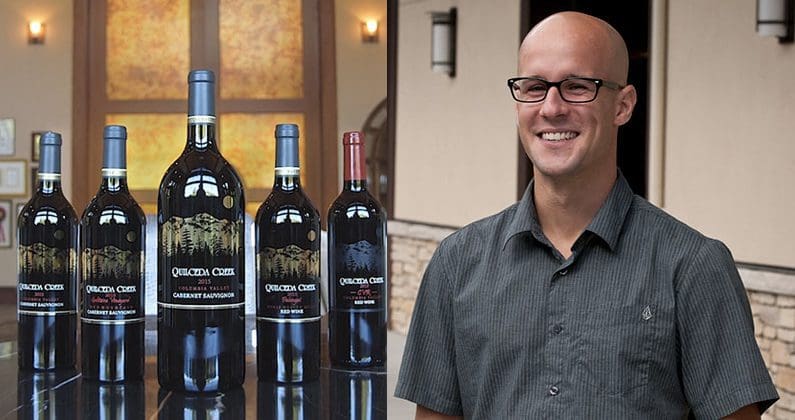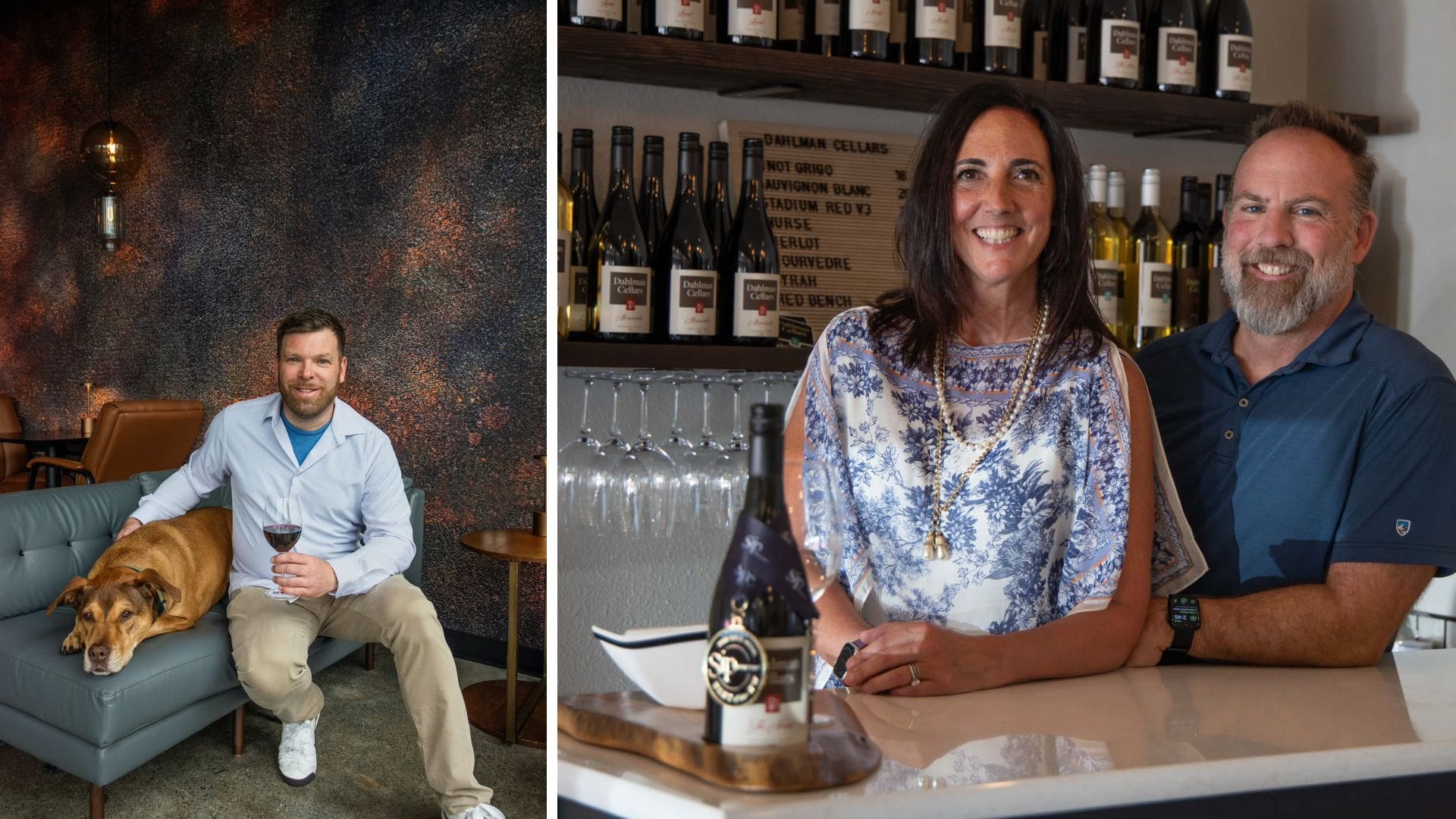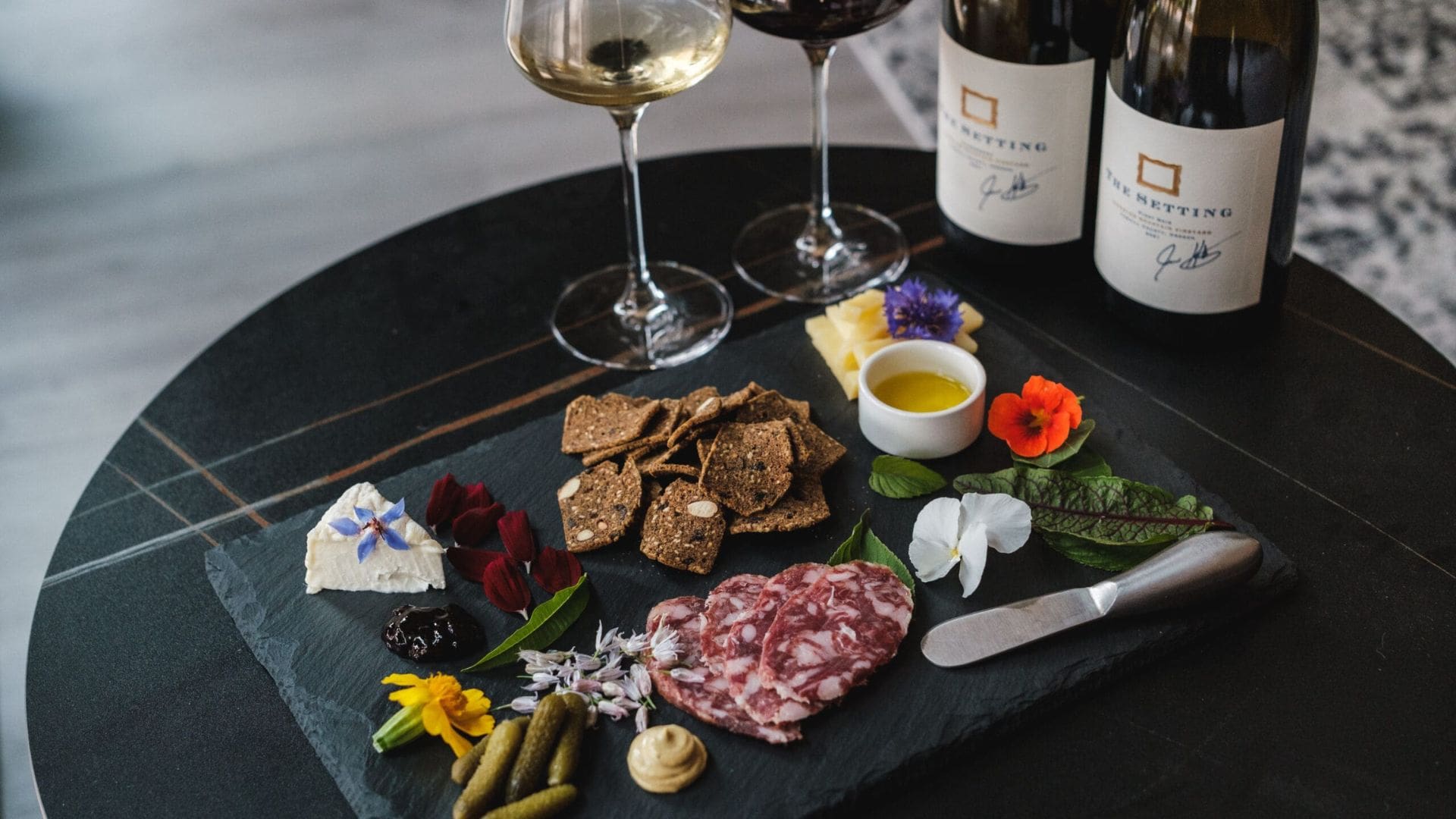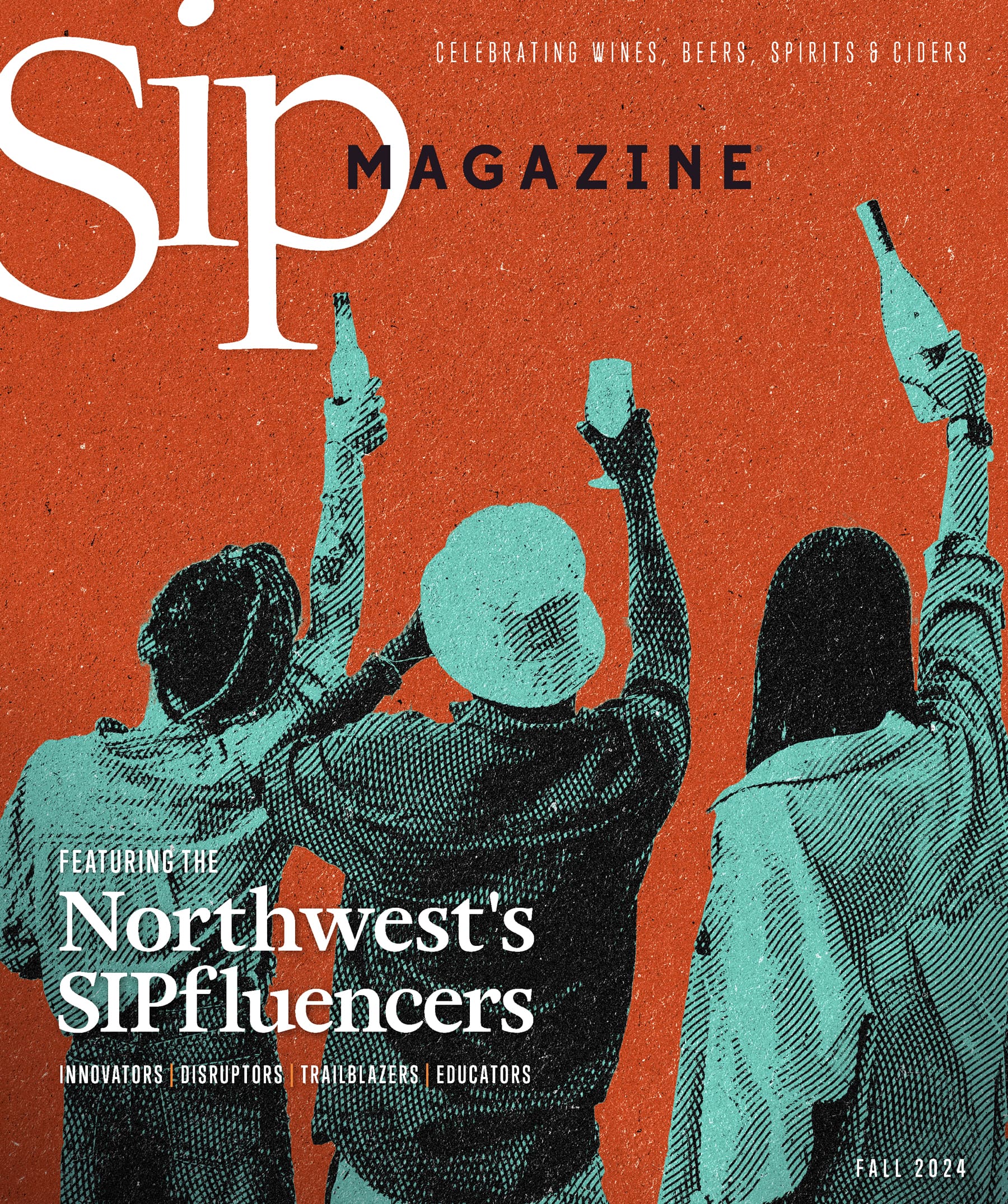Alex Stewart has been in the winemaking industry since he was 19 years old. Though he was originally pursuing medical school at the University of Washington, Stewart started to reevaluate his decisions after helping his brother, Lawrence, when his employing winery was shorthanded for bottling. That winery was Quilceda Creek — the heavily medaled, highly acclaimed Cabernet Sauvignon-focused Washington producer that touts six 100-point-rated Cabs. Shortly after working a harvest, Stewart joined his brother and in 2005 committed to the winemaking cause by attending California State University, Fresno, to earn his bachelor’s in enology.
Today, Stewart is the winemaker and enologist for the lauded winery, and his brother holds the post as assistant manager. Stewart says Quilceda Creek’s close family ambiance keeps him motivated to stay and work in the business, encouraging him to make the most of the elite fruit the tenured winery works with and produce some of the highest-caliber wines on the market.
What is your philosophy when it comes to winemaking?
Winemaking is such an honor; to be gifted the opportunity once a year to make something magical. Every vintage is different and every vintage you must adapt to what you are presented. There is no recipe.
My philosophy has always been to take a hands-off approach. Wines that are manipulated during vinification seem to lack character and are missing a voice. To authentically allow the life of the soil, the energy of the sun and the stress of the vine to harmonize and dominate a wine, a winemaker must be humble and intervene as little as possible. Growers will say that every crop is perfect, it’s up to the winemakers not to screw it up.
What makes you stay in the winemaking business?
Everything — everything about this industry is fascinating. The more I learn, the more I realize that I have more to learn. There will never be a moment that I have nothing left to satiate my odyssey of wine. However, the singular element that makes me stay in this industry is the people. The relationships that I have built throughout my career are unparalleled. Every persona of the industry has a stereotype, and they are usually accurate. From the growers to the winemakers and the somms, all walks of life have gravitated to wine because of a passion for bringing people together around a common interest. Wine unites us all. In wine there is truth.
According to your bio on the winery’s website, you believe winemaking is the “synthesis between art and science.” Can you explain what you mean by that?
The science of winemaking starts early. Farming the fruit, we are constantly taking quantifiable measurements that dictate many decisions. As the fruit develops, we take more measurements of sugars, acids, etcetera, to determine if we are nearing harvest. The days leading up to harvest are where the lines of art and science begin to blur.
Sure, the fruit may be ripe by the numbers, but there needs to be flavor development. It is up to the individual — and logistics — to decide when the fruit is ready. While fermentation gets underway, the chemistry and microbiology take the driver’s seat. We are constantly analyzing tannin, acid, alcohol and yeast/bacteria populations — these analyses don’t seem to stop, even after the wine is in bottle.
Although fermentation is dominated by science, there is some artistry to it, as well. The vision for the end product must be considered when deciding techniques to use throughout the process — open versus closed-top tanks, stainless versus barrel ferment. Once the wine is finished, the fun begins.
Putting together blends can be a painstakingly beautiful process; it is not done overnight. At one point you may think, “hey, we nailed it,” and the next you scrap your days, weeks of effort and start from square one. You rely on your experience of tasting wines of the world to guide your creation. Ultimately, you are challenged to create something completely unique and beautiful, but you can’t get there without the knowledge of the process.
You recently moved from production manager to winemaker. How does that promotion feel?
It was a bit of a lateral, because I was in the position of production manager since 2014 and assumed, for the most part, the same duties and responsibilities with a more cache title. It has been an honor to move up the ranks at such a prestigious winery.
My focus has always aligned with that of Quilceda: We maintain high standards and an incomparable quality of work. I imagine work ethic played a role in my climb up the ladder. I can always hear my father’s words playing like a broken record, “A job worth doing is worth doing well.” There is so much blood, sweat and tears that are poured in to each vintage. Why waste all that effort and not see it through to the end?







